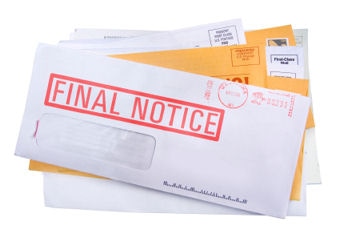Chapter 7 Bankruptcy
For people who have a lower income and no significant assets to worry about, Chapter 7 can be a surprisingly easy way to get a legal fresh and predictable fresh start right away. After a three month Chapter 7 case, you can find yourself debt free and ready to start rebuilding your credit right away.
Bankruptcy laws allow most people to keep all their property while shedding debt. The exemptions found in bankruptcy protect property from being taken to pay debt. We all need our essentials to survive and continue being productive citizens. The kinds of property that is protected in Chapter 7 include retirement plans, equity in our homes, cars, household goods. In Washington, we can choose between federal and state exemptions. The federal wildcard exemption even allows you to keep up to $11,750 in cash – and the wild card exemption can be added to any other exemption. Federal exemptions are usually used if you do not have any significant equity in your home.
Chapter 7 is easy if your household makes under the median income. In Washington, the median income as of May 1, 2013 is $52,724 for a household of one, $65,123 for a household of two, $71,123 for a household of three, $83,270 for a household of four. Add $7,500 for every household member above that. If you made more than that in the past six months, you must submit your income to a “means test” which deducts legally defined expenses from your monthly budget to see if there is any income left to pay creditors. If there is money left over in your budget, it is presumed you are abusing the bankruptcy system by staying in a Chapter 7. You may be forced to convert your case to a five year Chapter 13 repayment plan in that case. Otherwise your case will be dismissed. Because looking back six month is often unrealistic and the means test is far from perfect, sometimes you can rebut the presumption of abuse by claiming special circumstances, such as a drop in income or a recent addition to your household, and stay in Chapter 7.
 A Chapter 7 case starts by filing a petition and related documents with the bankruptcy court. These documents include income, a budget, property and debt along with the means test. Debt collection ceases as soon as you file your case. A trustee is appointed and you are scheduled to appear at a meeting of creditors one month after you file your case. Creditors rarely appear at this hearing where you testify under oath to a trustee who looks over your case and determines whether there are any assets. Your attorney will appear with you. In most cases, the trustee finds no assets and there are no other hearings to attend.
A Chapter 7 case starts by filing a petition and related documents with the bankruptcy court. These documents include income, a budget, property and debt along with the means test. Debt collection ceases as soon as you file your case. A trustee is appointed and you are scheduled to appear at a meeting of creditors one month after you file your case. Creditors rarely appear at this hearing where you testify under oath to a trustee who looks over your case and determines whether there are any assets. Your attorney will appear with you. In most cases, the trustee finds no assets and there are no other hearings to attend.
The end result of the Chapter 7 is a discharge. The discharge cancels debt by prohibiting creditors from every trying to collect from you again. Some debt is not discharged, such as student loans, back taxes, back child support and spousal support and fines. If you want to keep property such as a car or a house, you need to keep making payments on them. Though the bankruptcy will be on your credit report for ten years, you can start rebuilding your credit soon after you get your discharge.
If you’re drowning in debts that keep you from ever getting ahead or struggling each month just to keep a roof over your head, put food on the table, and keep gas in your car, then our Chapter 7 bankruptcy lawyers may be able to help. We are experienced, trusted, and respected Washington state bankruptcy lawyers fighting hard to protect you and your family during difficult financial times. Give us a call at (844) 925-2943 or fill out our online form.
 Washington State Attorneys Home
Washington State Attorneys Home















































